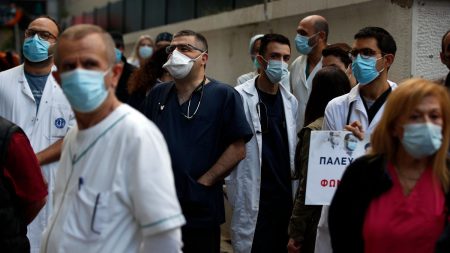The European Commission is embarking on an ambitious, and arguably rushed, legislative journey to address the critical issue of medicine shortages within the EU. Driven by Health Commissioner Olivér Várhelyi, the Commission aims to present the Critical Medicines Act within the first 100 days of the new administration, a self-imposed deadline that has sparked concerns among stakeholders about the potential sacrifice of thoroughness for speed. This accelerated timeline leaves little room for a comprehensive impact assessment, a crucial step typically undertaken to evaluate the potential consequences of proposed legislation, raising doubts about the depth of evidence gathering and stakeholder consultation informing the Act.
The urgency to tackle medicine shortages, particularly for essential drugs like antibiotics, insulin, and painkillers, is undeniable. These shortages, often stemming from complex supply chain vulnerabilities and reliance on limited manufacturers, have tangible consequences for patients across the EU. The Critical Medicines Alliance, a body comprised of 250 stakeholders, was established to analyze these vulnerabilities and provide recommendations. However, the Commission’s decision to rely on the Alliance’s forthcoming recommendations, expected just days before the Act’s planned release, coupled with an extremely short four-week call for evidence, raises questions about the genuineness of stakeholder engagement.
The condensed timeframe for consultation and evidence gathering has prompted criticism from various stakeholders, including patient organizations and public health advocates. They argue that such a truncated process undermines the principles of evidence-based policymaking and risks producing legislation that fails to adequately address the complexities of the issue. The European Public Health Alliance (EPHA), for example, emphasizes the importance of comprehensive engagement and consensus-based positions to effectively influence policy. Rapid turnaround times, they contend, hinder the ability of stakeholders to mobilize resources, consult experts, and formulate cohesive responses, ultimately leading to less effective advocacy and potentially flawed policy outcomes.
Furthermore, the internal processes within the Commission, including interservice review and legal scrubbing, typically require considerable time. While these procedures can be expedited, doing so significantly increases the likelihood of overlooking crucial details or creating loopholes. The tight schedule suggests that the final text of the Act will likely be finalized mere days after receiving the Critical Medicines Alliance’s recommendations and well before the conclusion of the stakeholder consultation period, effectively rendering the call for evidence a mere formality. This raises concerns that stakeholder input will be largely disregarded, further undermining the legitimacy and effectiveness of the legislative process.
The European Patients Forum (EPF), along with EPHA members of the Critical Medicines Alliance, echoes these concerns, highlighting the insufficiency of the timeframe for meaningful stakeholder participation and the development of robust, evidence-based legislation. While acknowledging the pressing need to address medicine shortages, they stress the importance of a carefully crafted legislative approach to ensure its efficacy and deliver tangible benefits to patients. The rushed timeline, they argue, jeopardizes this objective and risks creating a well-intentioned but ultimately ineffective solution.
In conclusion, the Commission’s pursuit of a rapid legislative solution to medicine shortages, while driven by commendable urgency, raises significant concerns about the adequacy of evidence gathering, the depth of stakeholder consultation, and the overall robustness of the resulting legislation. The extremely streamlined timeline, coupled with the bypassing of a comprehensive impact assessment, suggests a prioritization of speed over thoroughness. While the Critical Medicines Alliance’s input is valuable, the compressed timeframe for consultation raises questions about the genuine integration of stakeholder perspectives. This approach risks undermining the principles of evidence-based policymaking and potentially producing a legislative solution that falls short of effectively addressing the complex challenges surrounding medicine shortages in the EU.














